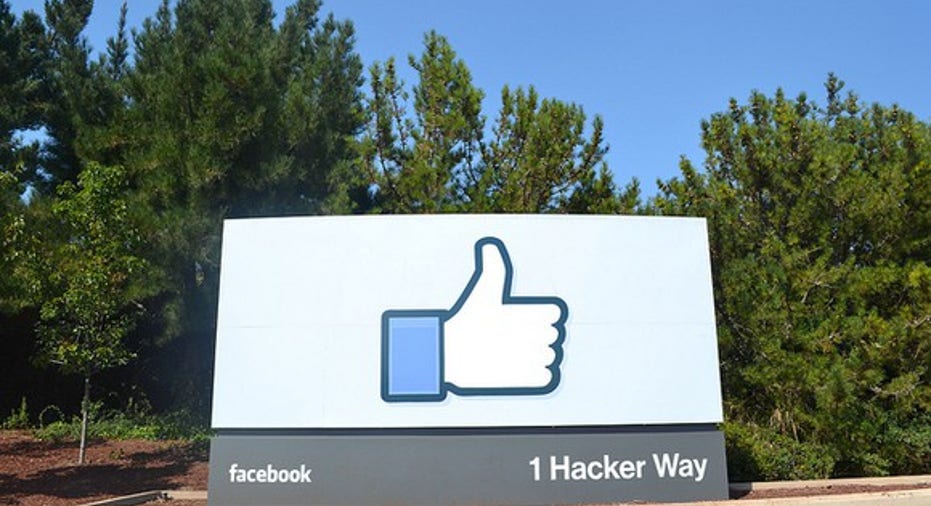Why Facebook Launched a New App Only for Teens

Image source: The Motley Fool.
Facebook (NASDAQ: FB) has recently launched a new standalone app called Lifestage, which is only for users under 21. The move seems to be clearly aimed at gaining some ground versus Snapchat, and it also shows that Facebook operates in a remarkably dynamic and always changing environment.
What is Lifestage?
Lifestage was designed by 19-year-old Facebook product manager Michael Sayman. The app was launched in August, and it's intended strictly for those of school age, as you need to be 21 or younger to interact with other users on Lifestage.
The user experience is built around video and school contacts. Lifestage encourages users to create all kinds of videos, allowing for different designs and customization features. Users are also required to enter the school they attend, and the videos posted on Lifestage can only be seen by people who register at the same school. Only one school per user is allowed, so you need to create another account if you want to connect with people from multiple schools.
Interestingly, users can only see other people when more than 20 users from the same school are using the app. The main idea behind this feature is probably encouraging users to bring their friends to Lifestage. This looks quite similar to how Facebook used to work during its initial growth stage, when the social-media platform was expanding on a school-by-school basis.
In fact, Michael Sayman explained in his personal Facebook profile how Lifestage is aimed at re-creating for teenagers the same experience Facebook was providing when it was still a young and emerging platform. In his own words:
Lifestage vs. Snapchat
Facebook has faced increasing competitive pressure from Snapchat over the past several years. Snapchat reportedly reaches 41% of all 18- to 34-year-olds in the United States, and more than 10 billion videos are being watched on Snapchat daily. According to estimates from eMarketer, Snapchat will reach 58.6 million monthly users in the U.S. this year, representing over 28% of all smartphone users in the country.
Snapchat is rapidly gaining ground among millennials and young consumers, a key demographic group in the social-media industry. Not only that, but video content is particularly valuable for advertisers, so Snapchat is a major competitive threat to Facebook when it comes to both demographic market and content from.
In a move that closely resembles the way Snapchat works, Facebook recently launched Instagram Stories, a secondary feed of Instagram content that disappears in 24 hours. Like Instagram Stories, Lifestage seems to be aimed at fighting back against Snapchat.
Change is the only constant in social media
Facebook has reached a gargantuan scale. The company ended the second quarter of 2016 with 1.71 billion monthly active users around the world, a 15% year-over-year increase. Engagement trends are also pointing in the right direction, with 66% of all users engaging daily with the platform, versus 65% in the second quarter of 2015.
For reference, Twitter (NYSE: TWTR) has a much smaller user base of 313 million monthly users as of the second quarter, and the short-message social network grew its user base by a lackluster 3% year over year during the period. Twitter is simply no match to Facebook when it comes to both scale and growth.
However, Facebook operates in a very particular industry, and the company can be a victim of its own success. If almost everyone has a Facebook account, then Facebook can't be the coolest and trendiest social network around. Teenagers don't particularly enjoy spending time in the same social networks as their parents and teachers, so they naturally gravitate toward other networks, such as Snapchat.
The fact that Lifestage is only for those 21 or younger can be a serious limitation in terms of overall size potential, but it can also create a major advantage in terms of attracting a particular audience and retaining it over time. Change is the only constant in social media, so Facebook needs to be permanently changing to stay relevant.
A secret billion-dollar stock opportunity The world's biggest tech company forgot to show you something, but a few Wall Street analysts and the Fool didn't miss a beat: There's a small company that's powering their brand-new gadgets and the coming revolution in technology. And we think its stock price has nearly unlimited room to run for early in-the-know investors! To be one of them, just click here.
Andrs Cardenal has no position in any stocks mentioned. The Motley Fool owns shares of and recommends Facebook and Twitter. Try any of our Foolish newsletter services free for 30 days. We Fools may not all hold the same opinions, but we all believe that considering a diverse range of insights makes us better investors. The Motley Fool has a disclosure policy.



















